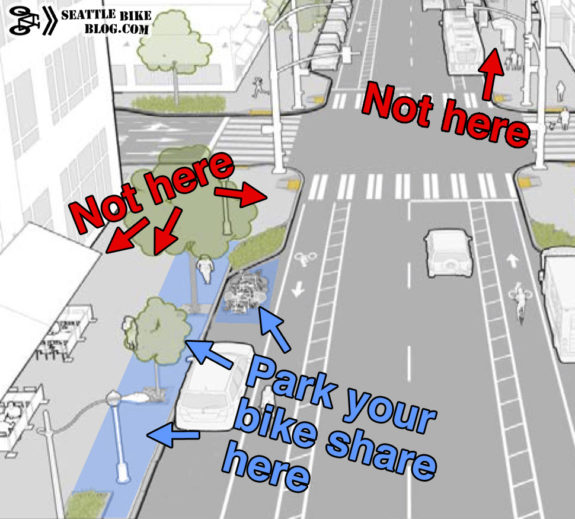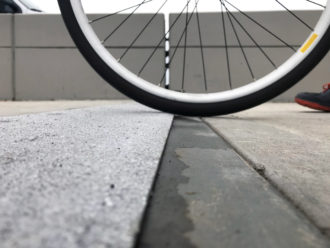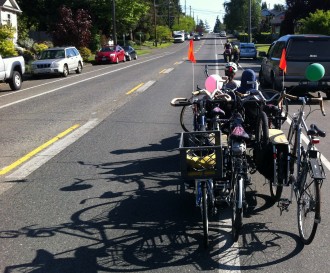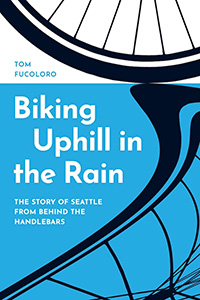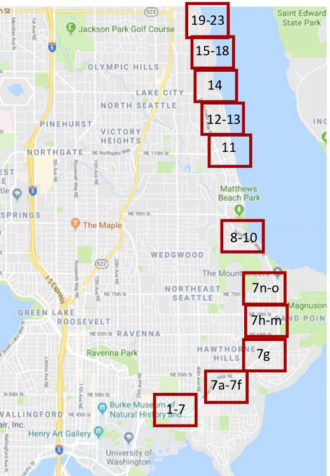
Seattle Parks is getting ready to start fixing bumpy pavement and outdated bollards on some of the oldest sections of the Burke-Gilman Trail between 30th Ave NE (just east of U Village) to the city’s northern border with Lake Forest Park. So be ready for a summer of short detours as crews go section-by-section to complete this work.
Work is scheduled to begin this month. And some of the detours look like they include some tough climbing.
Much of this section of trail has not been paved since the 70s, so we have really gotten a lot out of that investment. But sections of the trail have deteriorated significantly since then either due to erosion or tree roots. In many sections, the trail has lost significant width due to the edges crumbling away over time. We have also learned a lot about trail design and construction since the city first laid this asphalt on top of the old railbed 41 years ago.
Below are the planned detour diagrams from the contractor for each segment. They will not all be in effect at the same time. I have not yet tested them, though some look tough. If you are familiar with these side streets, let us know your thoughts in the comments below (the orientation of the maps switch around, so remember that “streets” are usually east-west and “avenues” are usually north-south): (more…)

